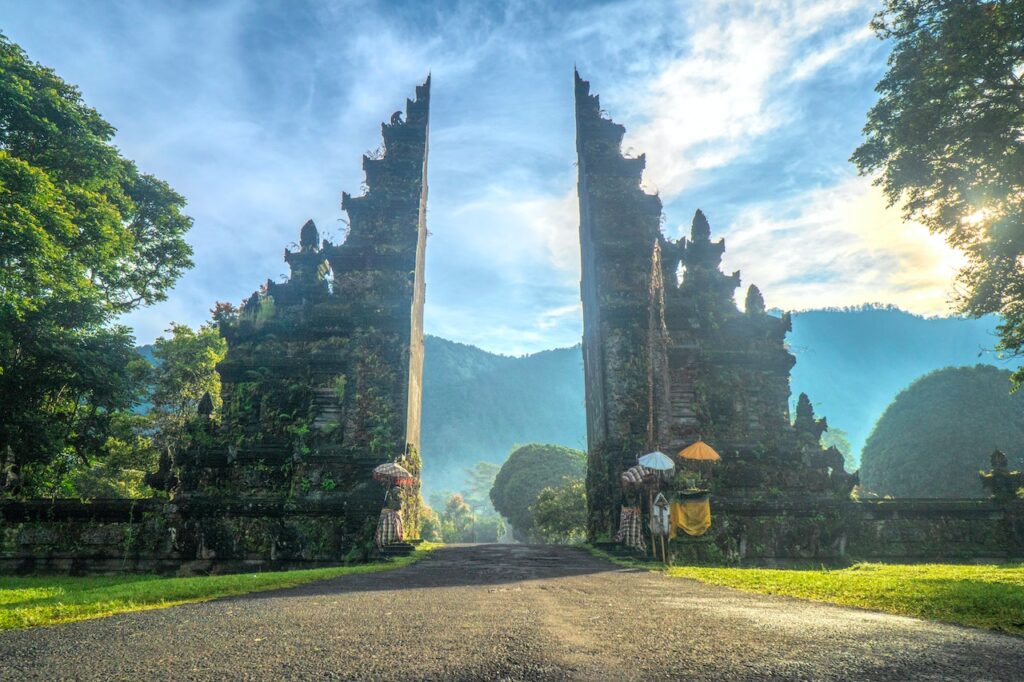
There’s a good reason why Bali is called The Island of the Gods. With its stunning natural beauty, vibrant culture, and deep spiritual traditions, Bali has become a popular destination for travelers seeking a unique and enriching experience. In this article, we’ll explore the spiritual significance of Bali and what makes this island so special.
The Balinese Culture
The Balinese culture is deeply rooted in Hinduism, which was brought to the island by Indian traders in the 1st century AD. Over time, Balinese Hinduism has developed its own unique practices and beliefs, blending Hinduism with animism, ancestor worship, and other traditional practices.
One of the most striking features of Balinese culture is its devotion to the gods and goddesses. There are over 20,000 temples on the island, and religious ceremonies and festivals are an integral part of daily life. The Balinese believe that the gods and goddesses are present in every aspect of life, from the natural world to human relationships, and that it is their duty to honor and appease them through prayer, offerings, and ritual.
Spiritual Sites in Bali
Bali is home to many sacred sites and pilgrimage destinations. These sites are believed to be imbued with spiritual power and are visited by locals and tourists alike to connect with the divine and seek blessings.
One of the most famous sites is the Mother Temple of Besakih, located on the slopes of Mount Agung. This temple complex is the largest and most important in Bali and is believed to be the center of the island’s spiritual universe. Other important temples include Pura Ulun Danu Bratan, located on the shores of Lake Bratan, and Pura Tanah Lot, a sea temple perched on a rocky outcrop on the coast.
Balinese Spiritual Practices
The Balinese have a rich tradition of spiritual practices, from daily offerings and prayer to elaborate ceremonies and rituals. These practices are designed to maintain harmony and balance in the world and connect with the divine.
One of the most important practices is the making of offerings, or canang sari. These small baskets are filled with flowers, rice, and other offerings, and are placed on altars, temples, and other sacred sites. This practice is believed to show respect and gratitude to the gods and goddesses, and to bring blessings and good luck.
Another important practice is yoga and meditation. Bali is home to many yoga retreats and meditation centers, where visitors can learn and practice these ancient disciplines in a peaceful and serene environment.
The Impact of Tourism on Balinese Spirituality
While Bali’s spiritual traditions are still strong, the island’s rapid development and growth in tourism has had an impact on its culture and way of life. Some argue that the commercialization of Balinese spirituality has led to a decline in authenticity and tradition, with many spiritual practices being commodified for tourists.
However, others argue that tourism has brought much-needed economic development to the island and has also helped to preserve and promote Balinese culture and traditions. Many local businesses and organizations are dedicated to preserving the island’s spiritual heritage and educating visitors about its significance.
Conclusion
Bali is a truly unique destination that offers visitors an opportunity to connect with the divine and experience a rich and vibrant culture. From its stunning natural beauty to its deep spiritual traditions, Bali is a place that leaves a lasting impression on those who visit. By respecting the island’s culture and traditions, we can ensure that Bali’s spiritual significance continues to be preserved and celebrated for generations to come.

